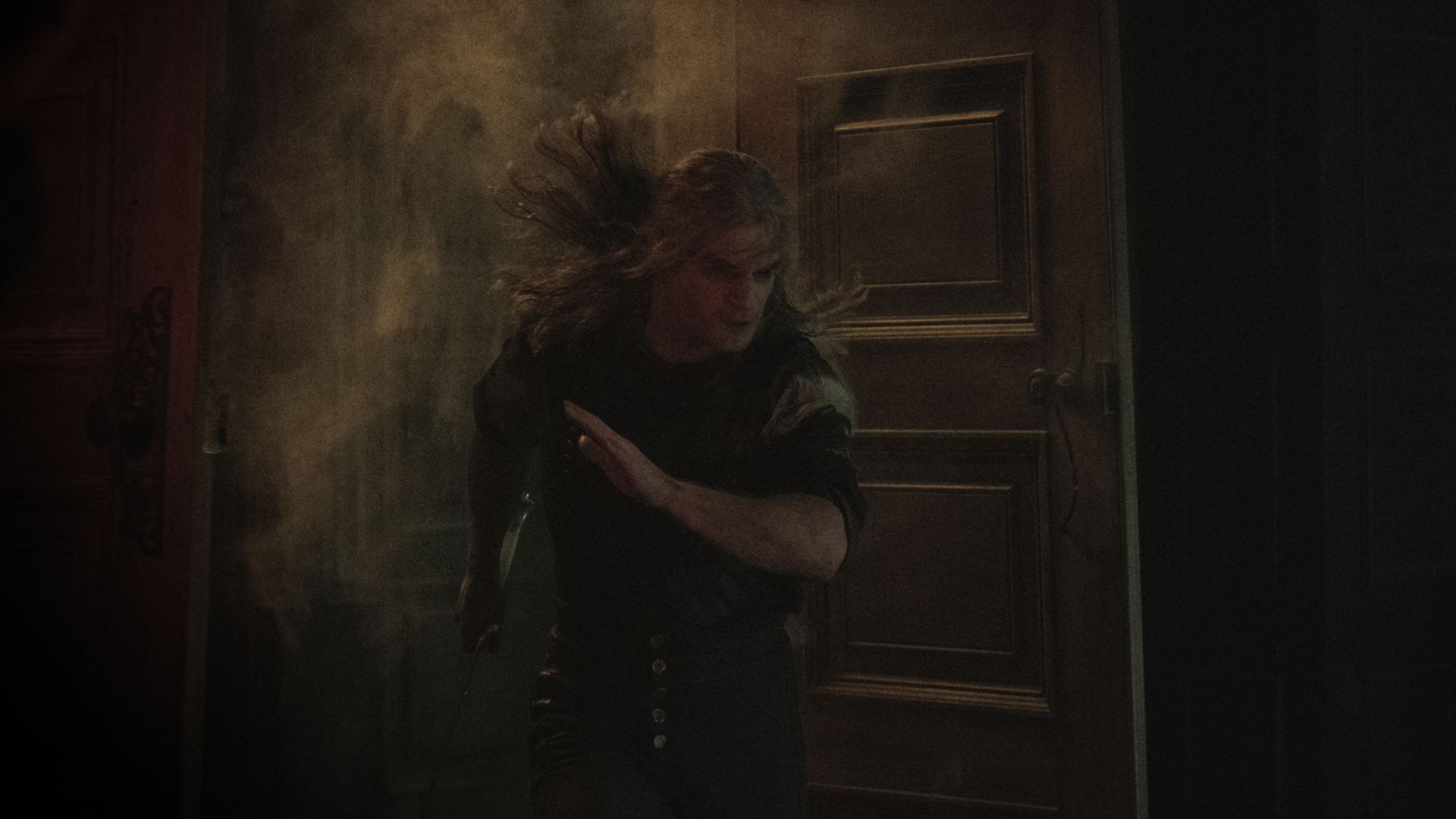
Sign up for breaking news, reviews, opinion, top tech deals, and more.
You are now subscribed
Your newsletter sign-up was successful
It sounds strange to say that a TV show parallels its own characters. And yet The Witcher season 2 shares a surprising commonality with its lead trio in Geralt, Ciri and Yennefer: the weight of expectation.
Despite season 1’s mixed critical reviews, The Witcher was a major Netflix hit when it debuted in December 2019. Seventy-six million households watched it within the first four weeks of release – a staggering number that saw it finish second only to Stranger Things season 3 in Netflix’s most popular series of 2019 list.
So how do you go about creating a second instalment that’s bigger and better than its predecessor? Success increases expectation levels within any fanbase, after all. But, for showrunner Lauren Schmidt Hissrich, there was a simple solution: raise the stakes.
“Season 1 did a lot of the heavy lifting for us,” Hissrich muses. “And I think that’s why it was a much more difficult season to write because it had to lay out the chess board – and it did. We had to explain what witchers and mages are, the political system, where elves factor into this, and the history of the Continent. But, this season, we get to play chess.”
Ahead of The Witcher season 2’s release, TechRadar spoke with Hissrich and the show’s cast to discuss the series’ evolution, new character interactions, and how the show asks us to confront our own dark side.
Conjunction of the peers
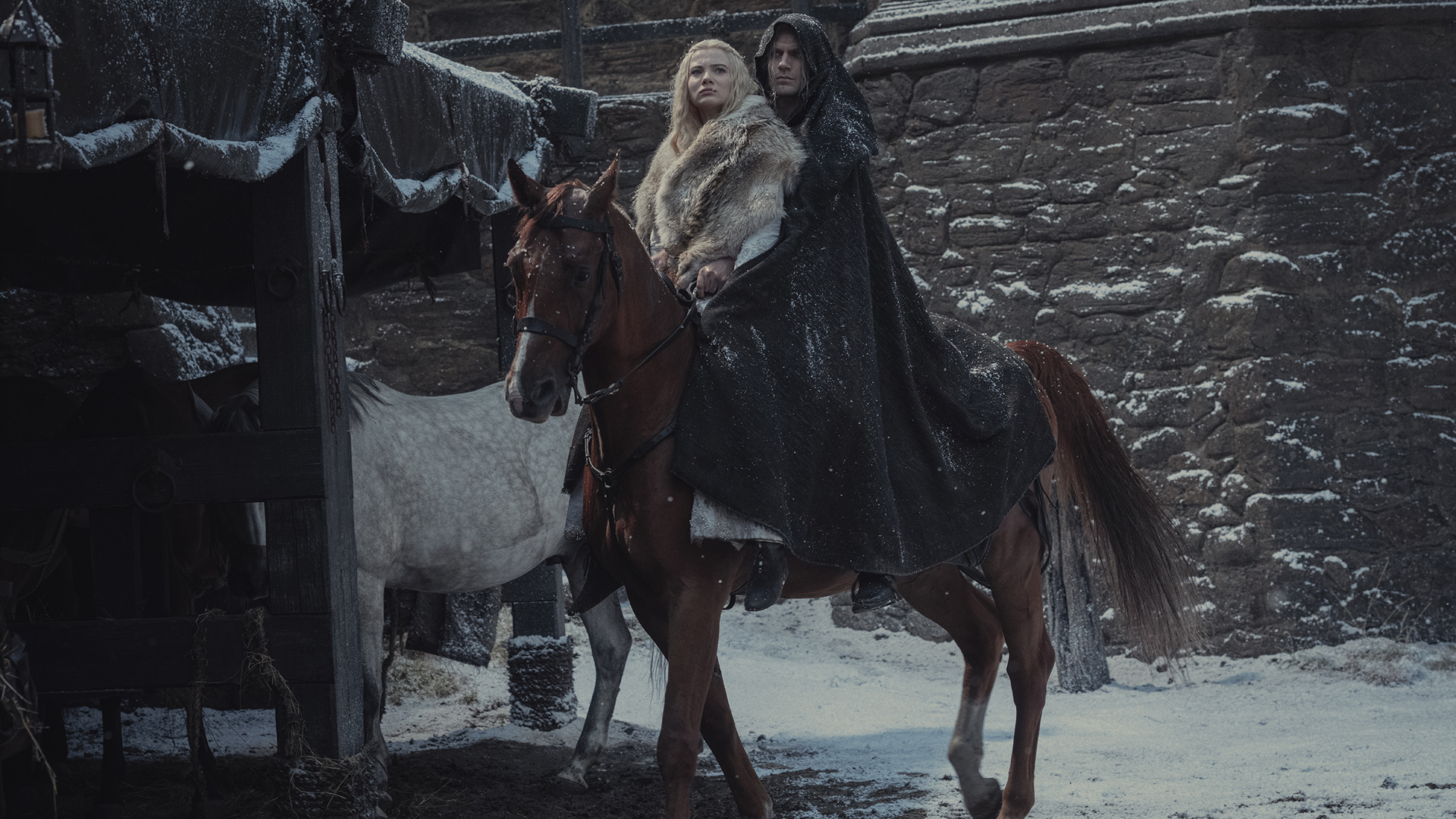
Set in the immediate aftermath of the first season’s finale, season 2 finds Geralt (Henry Cavill) and Ciri (Freya Allan) searching for Yennefer (Anya Chalotra) following the Battle of Sodden Hill.
Informed that Yennefer perished during the conflict with Nilfgaard’s forces – fans know that she’s still alive, though, thanks to season 2’s first trailer – Geralt takes Ciri to Kaer Morhen, his childhood home and the witchers’ training ground, in a bid to keep her safe. As the Continent’s various factions vie for supremacy beyond Kaer Morhen’s walls, though, Geralt not only has to defend Ciri from outside forces: he must also protect her from the mysterious power she possesses and can’t fully control.
Sign up for breaking news, reviews, opinion, top tech deals, and more.
With Geralt and Ciri finally meeting in season 1’s final scene, The Witcher’s primary three narratives – Yennefer’s included – sync up at last in season 2. Save for Geralt and Yennefer previously crossing paths on the odd occasion in season 1, the duo’s and Ciri’s respective arcs were set in different time periods – a contentious issue among fans that made the show difficult to follow. Viewers will be pleased, then, that season 2’s events follow a more cohesive, linear narrative; something that Hissrich stresses was always the plan.
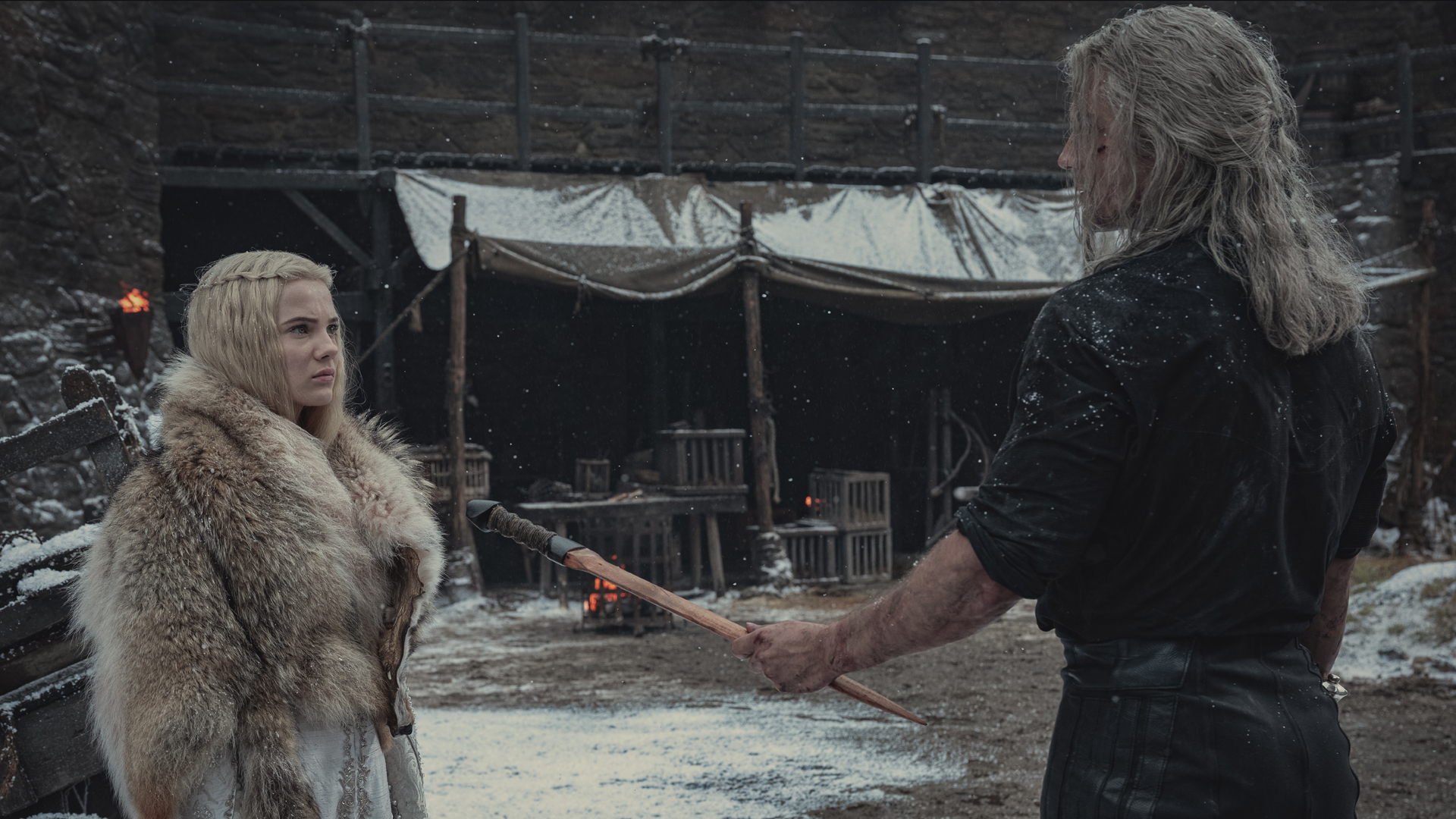
“It was important to me not to tell the entire story through Geralt’s point of view, which is how it’s done in the short stories,” Hissrich explains. “I wanted to make sure that these characters had agency of their own with layers and complications. And that meant we had to start things in different timelines as they weren’t living at the same time. With the Battle of Sodden Hill taking place, they’re all in the same space, which makes things easier to follow.”
Audiences have been eager to see Geralt and Ciri’s paths converge since the show’s pilot, and that lengthy wait certainly pays off in season 2. As the emotional core of the series’ second instalment, the pair share plenty of scenes that are rich in chemistry and laden with subtext.
Comparable sequences between characters including Geralt, Yennefer and Jaskier (Joey Batey) were present in season 1, but season 2 goes further in its exploration of character complexities and how they shape conversations between various parties. For Hissrich, increasing the number of such scenes was similarly key to delivering on fans’ wishes for a more coherent narrative – namely, making season 2 more personal.
“Fans told us that they want to get to know these people better,” she says. “Not every scene has to move the plot forward in some life-changing way. Sometimes, it can just be two characters sitting down and getting to know one another better, and then we get to know them better. So season 2 feels bigger and more expansive but, to me, also feels oddly more intimate, emotional and private.”
Family reunions

With Geralt opting to protect Ciri at Kaer Morhen, season 2 introduces audiences to his surrogate family. Other witchers from Andrzej Sapkowski’s novels, including Lambert (Paul Bullion), Coën (Yasen Atour) and Eskel (Basil Eidenbernz) make their live-action debuts, but it’s the inclusion of Geralt’s mentor in Vesemir (Kim Bodnia) that is the most significant of these encounters.
As the individual who raised and trained Geralt, it’s unsurprising that Geralt’s relationship with Vesemir is explored at length in season 2. For Cavill, himself a huge fan of the source material, that meant bringing humanity and tenderness to two characters who are viewed, by many on the Continent, as nothing more than cold-hearted killers.
“Kim and I worked very hard together to bring something to the characters that wasn’t necessarily in the books,” Cavill explains. “It’s that connection between these very dangerous individuals who live a hard life, but they have this incredible brotherhood and sense of belonging. I think Vesemir has always known that Geralt is this kind of person [a father figure to Ciri]; he recognizes part of it in himself, so it was incredibly important to us to bring these three-dimensional characters to life and have these two worlds conjunct.”
We wanted [season 2's main song] to be as reflective of the tone of the Continent as possible
Joey Batey, The Witcher co-star
That “connection” isn’t something that can be initially attributed to Ciri and Vesemir, however. Having never met Geralt’s surrogate father before, Ciri is distrustful of Vesemir at first – the dichotomy between Vesemir’s relationships with both characters, then, is plain to see. But, as Freya Allan (who portrays Ciri) teases, it isn’t long before the Lion Cub of Cintra opens up to her host.
“At the start, she isn’t entirely trusting of him,” Allan says. “But there’s a scene where Ciri’s wandering the castle when she shouldn’t be, and she sees all the witchers having fun with the women [they’ve invited to Kaer Morhen]. Vesemir catches her looking but he doesn’t tell on her. As time goes on, I think she realizes that Vesemir is the one who’s going to allow her to train when Geralt won’t, which is a big moment for her.”
“Ciri is such a powerful girl,” Bodnia adds. “The journey from being a girl to a woman, that was incredible for me to see as myself and as Vesemir. She reminds him of his first love so, in his head, he’s traveling back [in time] and thinking, ‘Oh my god, she talks and acts like her. What’s going on?’ So there’s more here than meets the eye.”
Of monsters and men
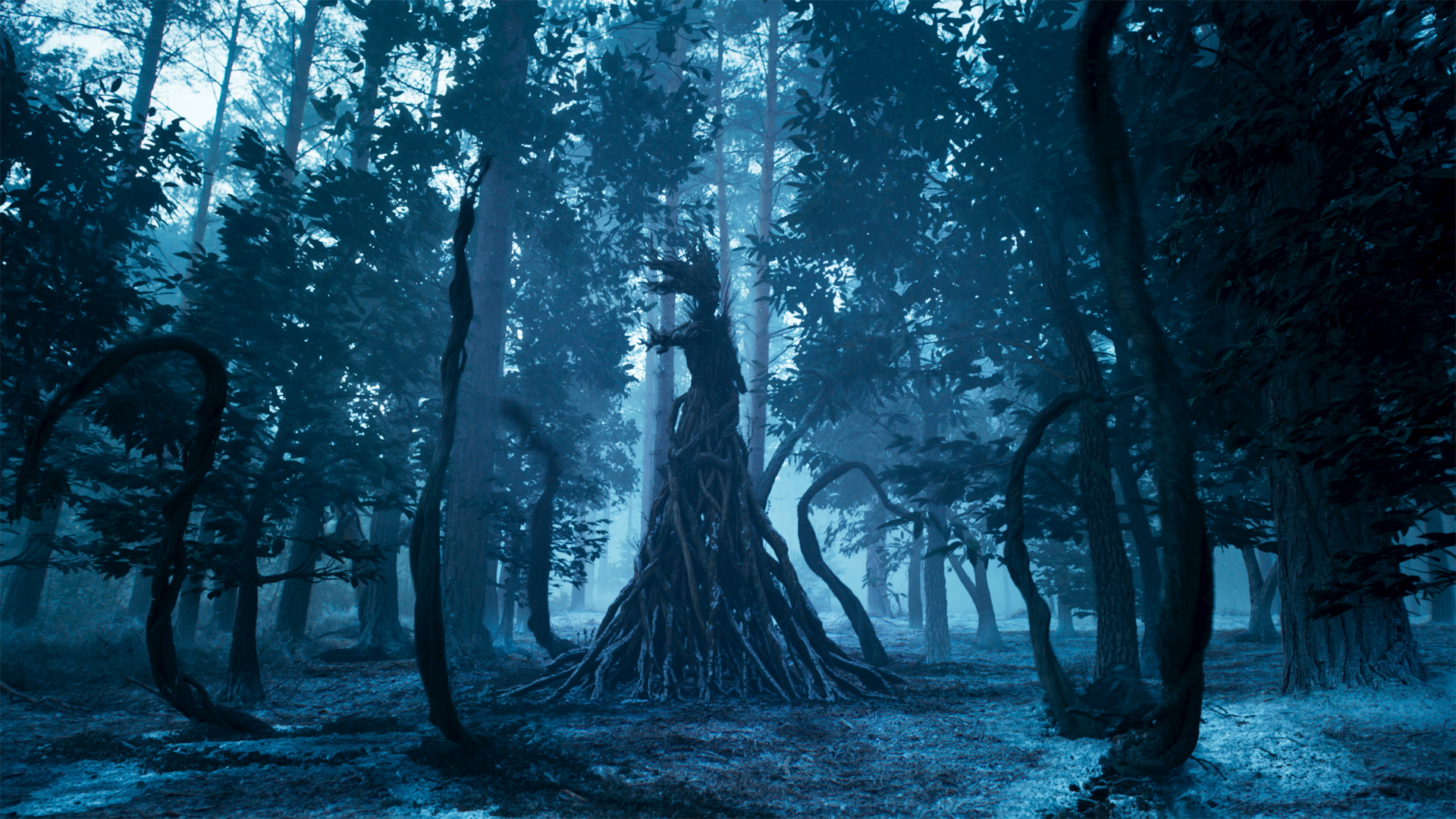
Each character's journey in season 2 is as life-changing and captivatingly heartfelt as they are action-packed and shocking. But, while Geralt and Ciri must navigate specific story arc obstacles, there’s one thing that unites them all: confronting the monster inside themselves. The Continent may be populated with actual monsters, including the tree-like Leshy and vampiric Bruxa. But it’s the proverbial devils inside our heroes that are a bigger threat than any physical being.
For Ciri, it’s learning to control the dangerous power and potential dark side – “I feel like I could burn the whole world,” she tells Geralt at one point – inside herself. Vesemir, meanwhile, is torn between his loyalties to Geralt and Ciri, and preserving the witcher lineage due to a revelation that’s revealed midway through season 2.
In Yennefer’s case, tackling her inner demons has become second nature. The Witcher’s most powerful mage has had to deal with more than her share of self-doubt and emotional trauma so far but, as actor Anya Chalotra teases, there are far more tests for Yennefer to navigate: not least because her season 2 arc parallels the start of her season 1 journey.
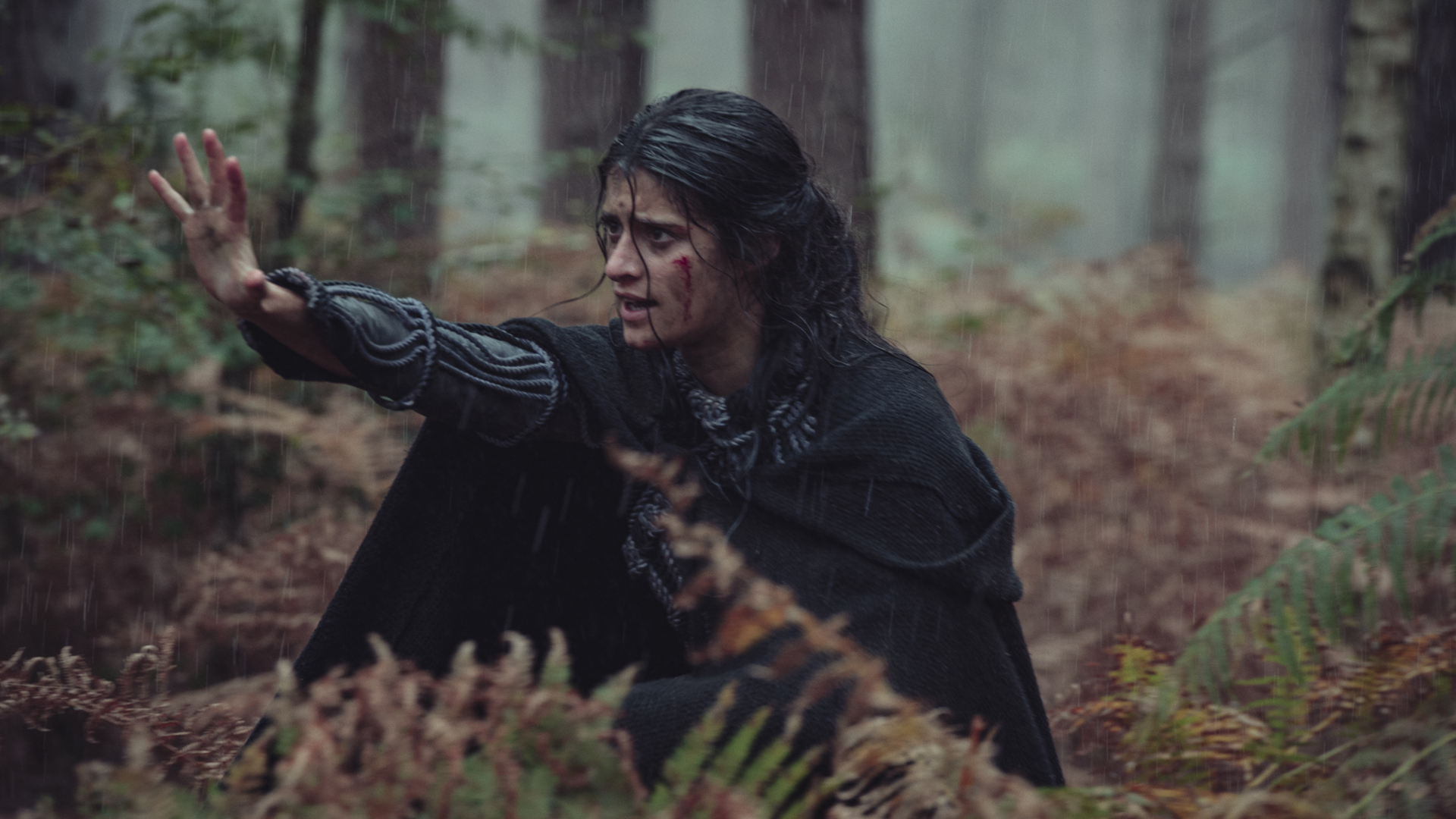
“I feel that Yennefer evolves a lot this season,” Chalotra says. “She goes on this epic journey of self-discovery again, but we really get into the nitty-gritty of her true power. Bringing her back to the beginning of season 1, what’s it like for her to be in that place again? It’s [a] really vulnerable [place] for her and I’m so glad that I get to explore that. You’re really going to relate to her and the choices she has to make.”
Even Jaskier, the bard with jester-like tendencies, is afflicted by grief and trauma. Having been disowned by Geralt in season 1 episode 6, the usually jovial lady’s man has to reinvent himself to stay relevant in a world that’s rapidly changing. For Joey Batey, who plays Jaskier, this character revamp is only possible by overcoming the pain of losing his friendship with Geralt. And, in typical bard fashion, conquering such heartbreak comes in the form of a song that, like season 1’s breakout hit Toss a Coin to Your Witcher, is an earworm that refuses to go away.
“We’re in a position now we’re Jaskier is able to adapt as an artist and change as the best artists always do,” Batey explains. “But Joe [Trapanese, season 2 composer] and I also really tried to find a song that was emotionally vulnerable and pretty rageful. We’ve had a season of these characters trying to work out who they are amid these hints of war – the first drop of this oncoming storm being the Battle of Sodden – and now everything is on a knife edge. So we wanted Burn, Butcher, Burn to be as reflective of the tone of the Continent as possible.”
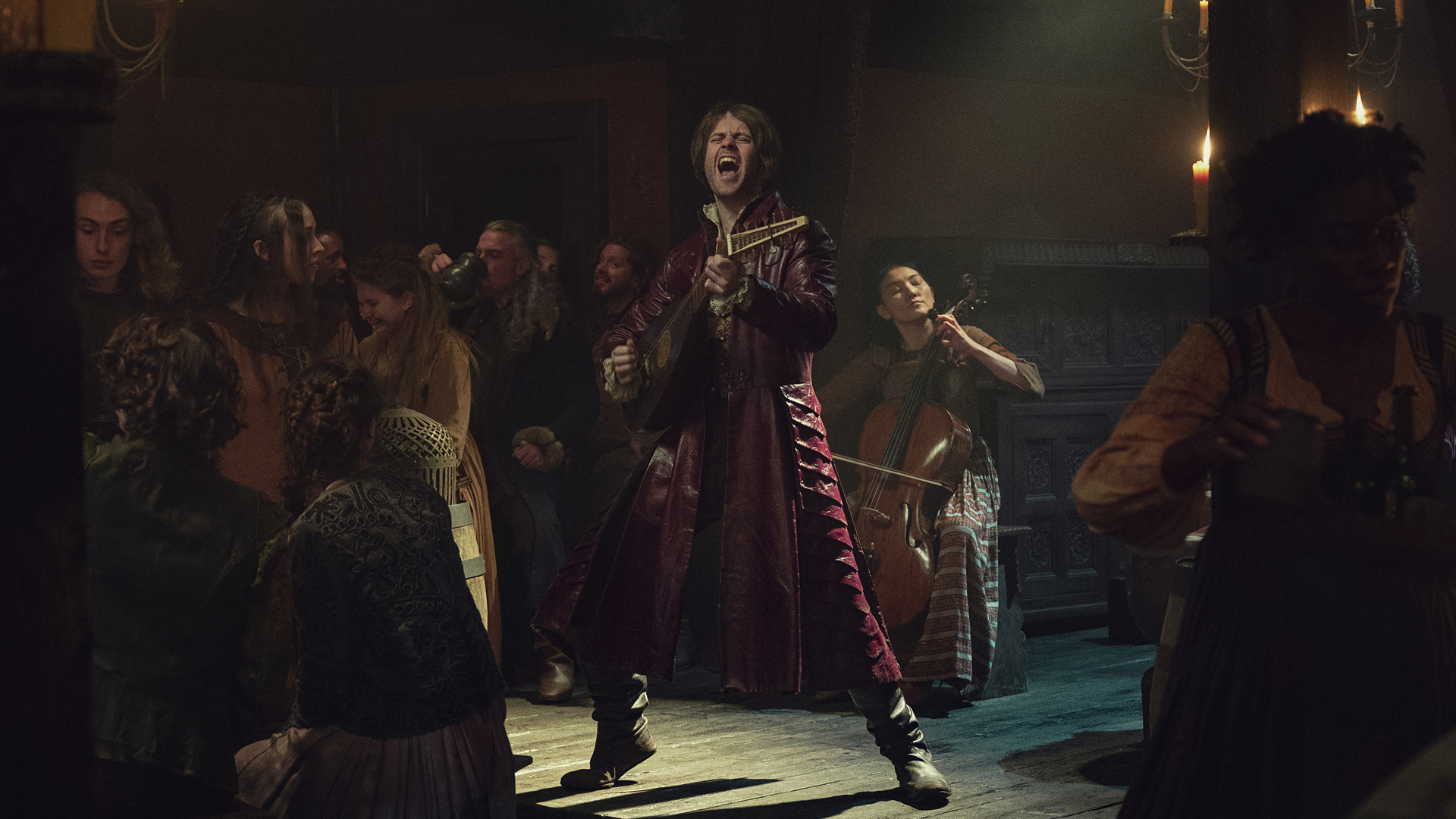
Ironically, while other characters grapple with their demons, Geralt is more at peace with his own. Viewers will recall Geralt’s ‘act first, think later’ and ‘kill at all costs’ mentality in season 1; character traits that positioned him as this calculating and feral-like individual.
In season 2, though, we see a more rounded, intelligent and profound take on the series’ iconic anti-hero – a side to Geralt that Cavill was keen to examine more deeply. And, given the team-ups between Geralt and some unexpected partners, including Istredd (Royce Pierreson) and Triss (Anna Shaffer), such qualities in Geralt really begin to shine through.
“It was a wonderful opportunity to delve into the character that exists in the books,” he admits. “In season 1, we didn’t really get a chance to do that, so this time we get to see more of the intellectual and philosophical lean from the character, as well as his soulfulness. He also realizes that he can’t do it all by himself. He’s so used to solving problems by himself – and they often don’t work. So he asks for outside help, and those characters say ‘this is bigger than you think it is.’ They help him uncover some answers, which aids his character development.”
Whether it’s exploring more of the Continent or its characters in greater detail, The Witcher season 2 is bolder and more complex than its predecessor. Battle lines are drawn internally and externally, with shocking moments and sudden betrayals lurking around every corner.
As much as The Witcher’s cast hope season 2 is as entertaining as its first, however, they hope it also offers a reflection of the world around us – and to overcome our own demons, especially now when communities and countries have never been more divided.
“Everyone evolves and matures this season,” Chalotra says. “New challenges are presented to them in the form of monsters, humans, elves, war, and that throughline of the elves and discrimination against them is something that’s brilliantly done. I hope it resonates with what’s going on today.”
“I think every character is trying to work out why they’re here on this Continent that’s seemingly falling apart,” Batey adds. “And they’re asking themselves ‘what’s my purpose?’ In season 1, we were standing up and getting ready to go – now, in season 2, it feels like we’re starting to run.”
The Witcher season 2 launches exclusively on Netflix on Friday, December 17.
- These are the best shows on Netflix right now
As TechRadar's senior entertainment reporter, Tom covers all of the latest movies, TV shows, and streaming service news that you need to know about. You'll regularly find him writing about the Marvel Cinematic Universe, Star Wars, Netflix, Prime Video, Disney Plus, and many other topics of interest.
An NCTJ-accredited journalist, Tom also writes reviews, analytical articles, opinion pieces, and interview-led features on the biggest franchises, actors, directors and other industry leaders. You may see his quotes pop up in the odd official Marvel Studios video, too, such as this Moon Knight TV spot.
Away from work, Tom can be found checking out the latest video games, immersing himself in his favorite sporting pastime of football, reading the many unread books on his shelf, staying fit at the gym, and petting every dog he comes across.
Got a scoop, interesting story, or an intriguing angle on the latest news in entertainment? Feel free to drop him a line.